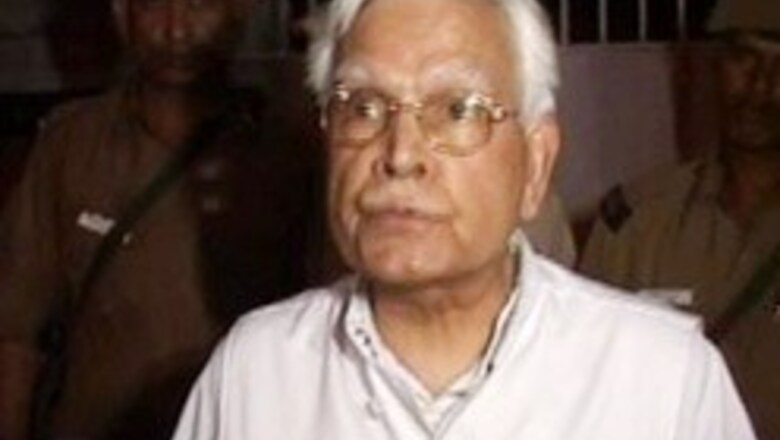
views
New Delhi: Former external affairs minister K Natwar Singh's notice of a motion for a breach of his privilege as an MP against Prime Minister Manmohan Singh is unprecedented in the country's Parliamentary annals.
He feels his privilege as an MP is hurt following the leakage of the report of the Justice R S Pathak Committee that probed his role in the oil-for-food deal with the erstwhile Saddam Hussain regime in Iraq.
He says it has been leaked by the Government - even before it was placed in parliament - with an intention to malign and discredit him.
It amounts to a direct challenge to the prime minister and an expression of lack of confidence in the Government he heads.
No MP, belonging to any party, has attempted this before.
If he goes ahead with it, he is bound to invite disciplinary action from the party's leadership.
Unless he withdraw the notice, it would be left to the presiding officer of the house, in this case Rajya Sabha chairman Bhairon Singh Shekhawat, to decide on whether or not admit it.
For its admission by the presiding officer, the motion would need the support of 20 Rajya Sabha members, which is there in the case of Natwar Singh.
Assuming that Shekhawat admits it, it would be debated and put to vote. All opposition parties supporting Natwar Singh do not have the numbers to carry the motion through. The Left members are not likely to support the motion if put to vote.
And assuming that the motion is carried by the house, the Government need not resign, this being the Upper House. But it would make Prime Minister Manmohan Singh's position untenable, forcing him to resign.
This is the position in theory.
Natwar Singh's notice stems from the assumption that the source of the report's leak is the Prime Minister's Office (PMO). This has been denied and it would be difficult for Singh or anybody to prove this.
Natwar Singh could have jumped to this conclusion, with or without a basis. Either way, the Government is answerable to the leak and he has put the Government on notice, literally and figuratively.
The Government may have no choice but to announce an official inquiry, but more likely, a parliamentary inquiry, since parliament's privileges have been invoked.
The opposition, going by its present mood and rallying behind Natwar Singh to embarrass the Government, though could press for a joint parliamentary committee (JPC).
At the same time, going by the reports on what he said last Friday, Natwar Singh has left an escape route open that should he feel satisfied that the PMO did not leak the report, he would not press his notice.
In real terms, he has caused damage to the Government, of which he was a part before this controversy blew up, forcing his resignation.
In political terms, he would remain unacceptable to the party even if he withdraws the notice, notwithstanding his oft-stated fealty to the Nehru-Gandhis and the Congress. For, the parliamentary process, like some court procedures, leaves little scope for a political forgive-and-forget.
Giving notice of breach of privilege is the right of an MP and numerous notices have been given and motions moved in the past. But it is a grey area in that its functioning leaves several aspects untested and unstated.
An MP can take recourse to this when he or she feels that any action by the Government, that amounts to breach of his or her privilege as a member of parliament or that of the house (parliament), by the violation of the rules of parliament or misuse of any parliamentary forum.



















Comments
0 comment